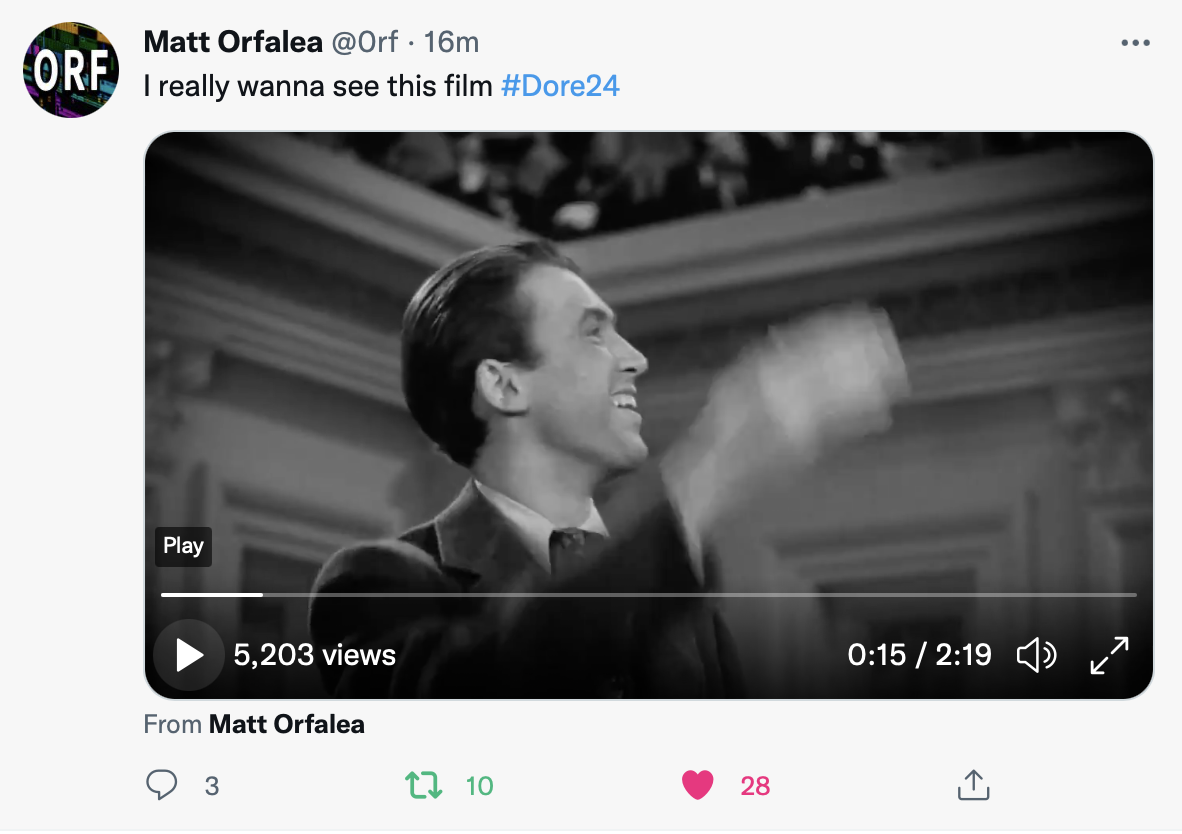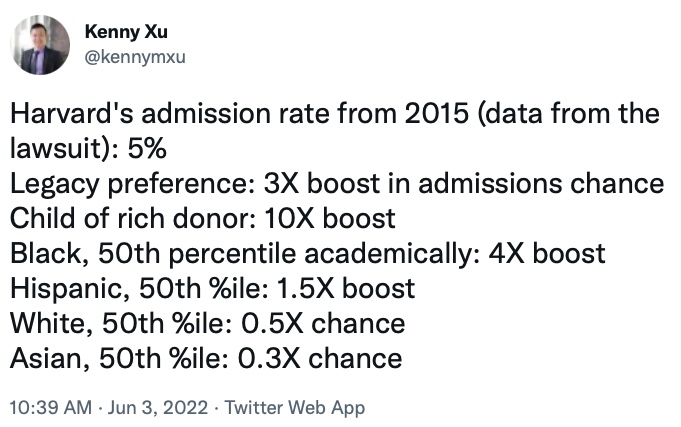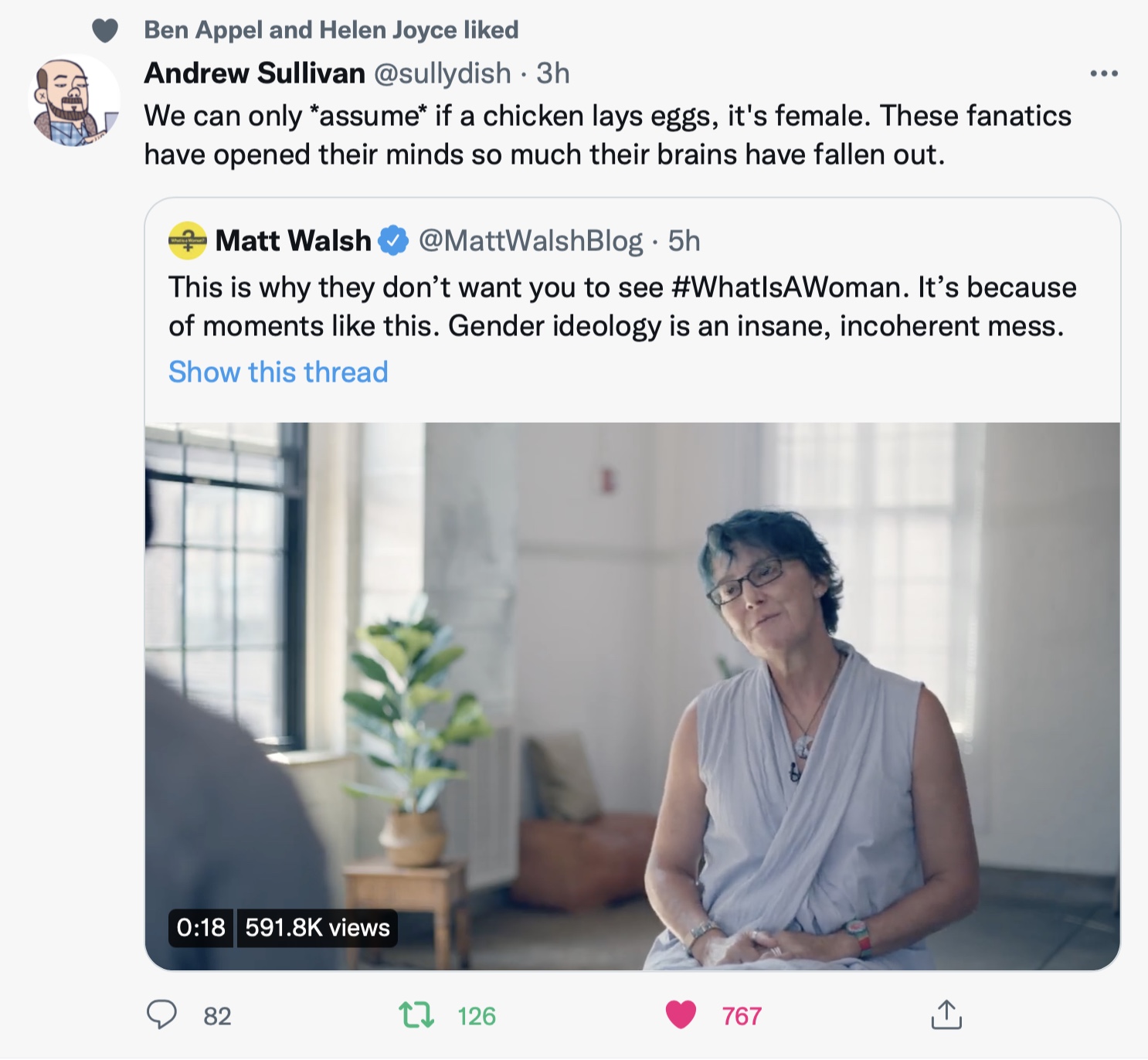Being Born the Right Way is the Best Way to Get into Harvard
Harvard's admission rate from 2015. This is data from the the class action lawsuit: Students for Fair Admissions, Inc. v. President and Fellows of Harvard College (Docket 20–1199).
One of the “Experts” Featured in New Documentary by Matt Walsh: “What is a Woman”
I'm make sure I never sign up any biology class taught by Dr. Michelle Forcier, featured in the video clip below, from the new documentary "What is a Woman?" I agree with Andrew Sullivan and Matt Walsh. This is sheer lunacy.
More about this interview and Walsh's documentary in general from the Daily Mail.
[Added June 4, 2022]
I haven't yet watched the entire documentary, but I am planning to do that soon. After reading reviews like this, I am all-the-more interested in seeing the documentary for myself: "What Is A Woman? Review of a Cultural Turning Point: The most important documentary of the year breaks the spell and is a reckoning for gender ideology."
How to Respond When a Public School Sues its Students for Not Using Vanity Pronouns of other Students
Fair spoke up for the students who were sued by the Kiel Middle School in Wisconsin. Here's an excerpt for the letter FAIR sent to the school:
By initiating proceedings against students for not using the alternative pronouns of others, Kiel is not simply punishing them for protected speech; it is compelling them to affirm ideological beliefs in violation of their First Amendment rights. Pronoun declarations are not value-neutral statements such as name and age. They are politically loaded and premised on a specific set of ideological beliefs: that pronouns refer to gender and not biological sex, that one can be neither male nor female, and that gender is a matter of personal choice rather than a biological condition.
On the Criminalization of Comedy
Andrew Doyle offers a sharp analysis on the criminalization of comedy.
- Go to the previous page
- 1
- …
- 232
- 233
- 234
- 235
- 236
- 237
- 238
- …
- 1,986
- Go to the next page




